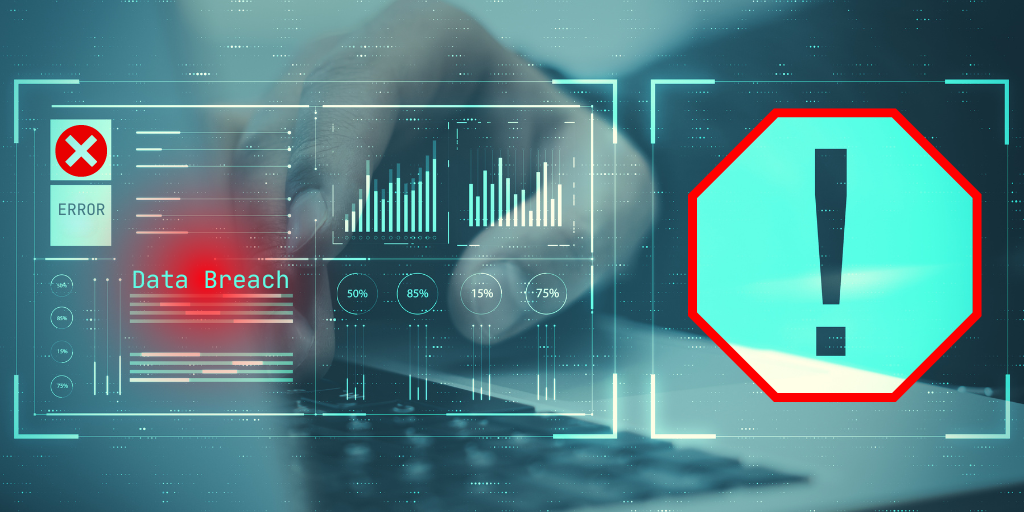The True Cost Of A Data Breach: More Than Just Money
A data breach impacts more than your bottom line—it threatens your reputation, disrupts operations, and erodes customer trust in ways that no...
4 min read
.jpeg) Michael Markulec
:
Jul 23, 2024 6:08:56 PM
Michael Markulec
:
Jul 23, 2024 6:08:56 PM

Discover how companies can effectively manage and mitigate the damage from data breaches caused by employee mistakes.
Data breaches can significantly negatively impact businesses, both financially and reputationally. When sensitive data is compromised, it can lead to financial losses due to legal liabilities, regulatory fines, and the cost of implementing remediation measures. Additionally, businesses may suffer reputational damage, as customers may lose trust in the company's ability to protect their personal information.
The loss of valuable intellectual property, trade secrets, or confidential business strategies due to data breaches can give competitors a significant advantage and have lasting repercussions on a business's ability to innovate and stay ahead in the market. With sensitive information compromised, the unique ideas and proprietary knowledge that set a company apart may be exposed, leading to a loss of competitive edge and potential revenue streams. Furthermore, unauthorized access to confidential business strategies can allow competitors to mimic or undermine a company's market position, eroding its market share and diminishing its long-term viability. In essence, the impact of data breaches on intellectual property and trade secrets goes beyond immediate financial losses, affecting the very foundation of a business's competitiveness and growth prospects in the industry.
Understanding the impact of data breaches is crucial for businesses to prioritize data security and implement effective measures to prevent such incidents from occurring.
Employee mistakes are one of the leading causes of data breaches in organizations. Whether it's a simple oversight in handling sensitive information or falling victim to a sophisticated phishing scam, employees play a crucial role in data security within a company. From weak password practices to improper data disposal, the potential for human error to result in a breach is significant. It is essential for organizations to not only identify these common mistakes but also to provide comprehensive training and resources to empower employees to become the first line of defense against potential security threats. By addressing these vulnerabilities and promoting a culture of vigilance and accountability, businesses can significantly reduce the risk of data breaches caused by employee errors. Some common mistakes include:
Identifying these common employee mistakes is crucial for organizations to address the root causes and implement measures to prevent data breaches.
Effective data breach response protocols are essential for minimizing the damage caused by data breaches and ensuring a swift and effective response. To ensure readiness, these protocols should be well-documented, regularly reviewed, and tested through simulated breach scenarios. Organizations can act swiftly to contain the breach, mitigate further damage, and restore normal operations as quickly as possible by having a clear roadmap for incident response. This proactive approach helps reduce the financial and reputational impact of a data breach and instills confidence in customers and stakeholders that the organization takes data security seriously.
By establishing effective data breach response protocols, organizations can minimize the damage caused by employee mistakes and effectively manage data breach incidents. These protocols serve as a roadmap for swift and coordinated action in a breach, ensuring efficient and comprehensive response. By proactively identifying and addressing vulnerabilities, organizations can mitigate the immediate impact of a violation and prevent future incidents. Having clear protocols demonstrates a commitment to data security, instilling confidence in customers and stakeholders that their information is being safeguarded effectively. Ultimately, a well-defined response plan is critical to protecting the reputation and integrity of the organization in the face of data breaches.
Training staff on data security best practices and breach response is crucial for preventing data breaches caused by employee mistakes. Critical aspects of staff training include:
By investing in comprehensive staff training, organizations can significantly reduce the risk of data breaches caused by employee mistakes.
Data breach incidents have legal and ethical implications that organizations must consider. In addition to legal obligations, organizations must consider the potential impact of failing to notify affected individuals, regulatory authorities, and other relevant parties about a data breach. Non-compliance with these obligations can result in legal liabilities and regulatory fines and lead to further reputational damage and loss of customer trust. Timely and transparent communication about a data breach is crucial in maintaining transparency and accountability, demonstrating a commitment to data protection, and fostering stakeholder trust. By proactively addressing notification requirements and communication strategies, organizations can navigate the aftermath of a breach responsibly and minimize the potential risks associated with non-compliance.
Data breaches involving personally identifiable information (PII) may trigger compliance requirements under privacy regulations, such as the General Data Protection Regulation (GDPR) or the California Consumer Privacy Act (CCPA). Organizations must comply with applicable laws to protect the privacy and rights of individuals whose data has been compromised. Failure to comply with these regulations can result in severe consequences, including hefty fines, legal action, and reputational damage. Organizations need to stay updated on evolving privacy laws and regulations to proactively address data security and privacy concerns and uphold the trust of their customers and stakeholders. By prioritizing compliance with privacy regulations, organizations demonstrate their commitment to data protection and ethical business practices, fostering a culture of trust and accountability within their operations.
Organizations have an ethical responsibility to protect the personal information of their customers and stakeholders. Failing to implement adequate data security measures or respond effectively to breaches can not only damage the trust and reputation of the organization. Still, it can also have far-reaching consequences on the individuals whose data has been compromised. In today's digital age, where data privacy is a growing concern, organizations must prioritize protecting sensitive information to uphold ethical standards and maintain the confidence of their clientele. By taking proactive measures to secure data and swiftly address any breaches, organizations demonstrate their commitment to ethical business practices and safeguard the privacy rights of those they serve.
Considering the legal and ethical implications of data breach incidents is essential for organizations to navigate the aftermath of a breach responsibly and minimize potential risks.

A data breach impacts more than your bottom line—it threatens your reputation, disrupts operations, and erodes customer trust in ways that no...

Explore the widespread consequences of Social Security Number breaches and how they threaten national personal and financial security.

Small businesses must prioritize secure messaging to protect sensitive information and maintain customer trust.